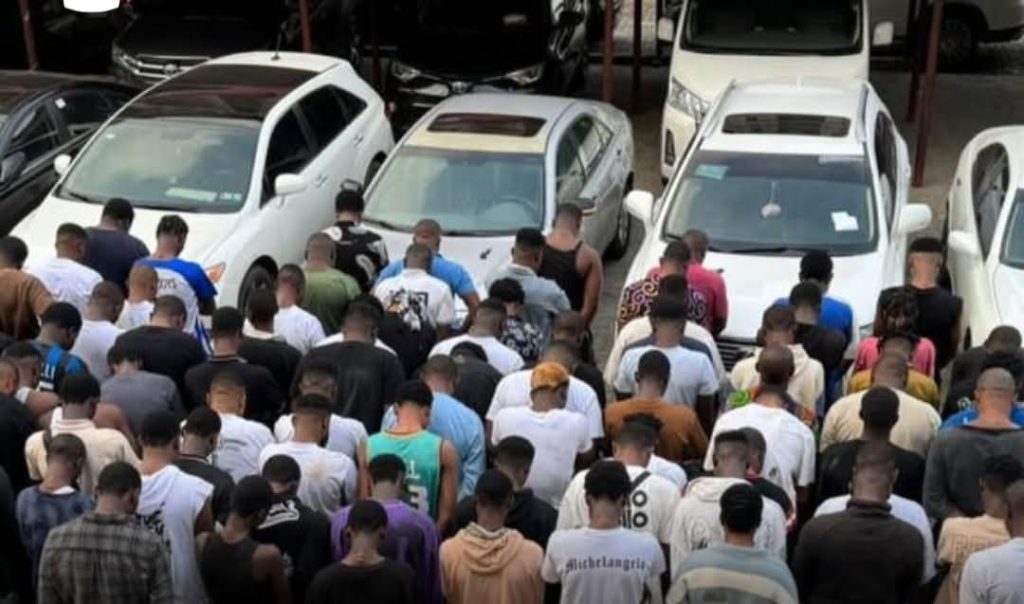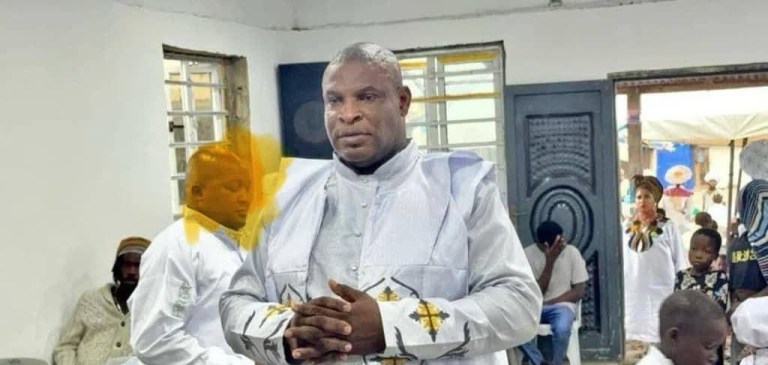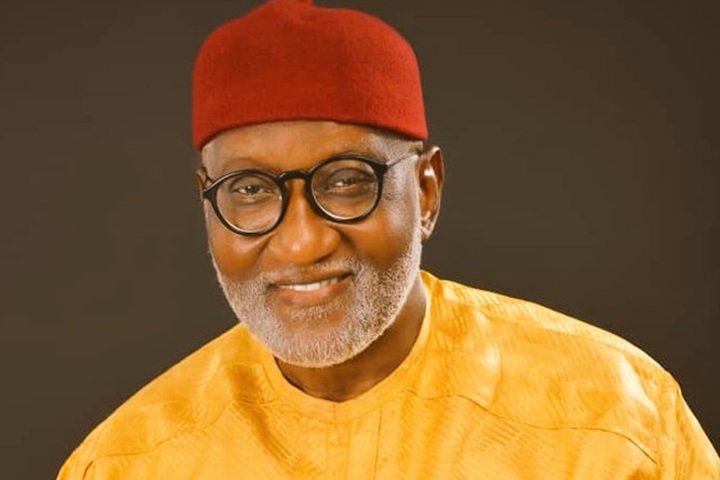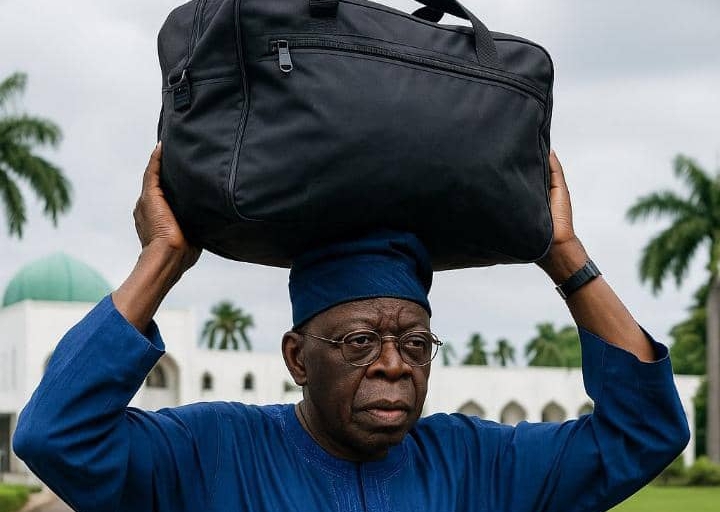Analysis
Christian Chukwu, 1951-2025: A Legacy Larger than Sport
By Chidi Odinkalu

On 6 December 1977, Olusegun Obasanjo, Nigeria’s military Head of State, received a group of young men from Eastern Nigeria who had come to present him with a trophy won in a football contest against the rest of Africa. They were members of a football team known as Rangers International Football Club of Enugu.
The previous day, led by the charismatic Christian Chukwu, the Nigerians had won the African Cup Winners Cup after beating their opponents by a 5-2 aggregate goal margin, arguably the most legendary generation of footballers from Cameroon’s Canon Sportif de Yaoundé.
On their way to claiming the title, they toppled the defending champions, IICC Shooting Stars of Ibadan, of Nigeria, who won the title the previous year by beating Tonnerre Kalara Football Club, also of Yaoundé.
In reality, the full import of that Dodan Barracks encounter between the Christian Chukwu-led Rangers International team and General Obasanjo transcended sport. The last time a bunch of young men from Eastern Nigeria and Obasanjo met at the same venue on 15 January 1970, it was in his capacity as guarantor of their safe passage as the make-shift leadership of the short-lived secession handed in their instrument of capitulation to then Head of State, Yakubu Gowon, bringing to an end the 30 months of the Nigerian Civil War. Separated by eight years, the contrast between the two scenes could hardly have been starker.
A mere five months after the end of the civil war, on 30 May 1970, a bunch of young men recovering from the traumas of the conflict, were handed a new mission by the visionary duo of sports administrator, Jerry Enyeazu and coach, Dan Anyiam. Unlike the civil war, the battles of the new mission were to be fought not with guns and bayonets but with natural talent, skill and grit on the football pitch.
To prosecute this mission, they christened the new team Rangers. Their base was in Enugu, the regional capital of eastern Nigeria, which later became the capital of what was then called the East Central State. The name of the team was a memorial to an experimental “strike force” originally conceived in the embers of the war by Timothy Onwuatuegwu, a major in the Biafran army, but which became stillborn. Indeed, the team drew some of its original talent from the core of that strike force. Its motto was “never say die.”
The story that ensued could itself have been stillborn, too. Their first official match was scheduled for 30 May 1970. It was the anniversary of the declaration of the Biafran secession by Emeka Odumegwu-Ojukwu in 1967. The military authorities in Lagos were jumpy and appeared set to dismantle the team even before it played its first match. Ukpabi Asika, the political scientist who served as the Administrator of the East Central State at the time, persuaded them to stay their hand. It was a deft work of advocacy that would alter the lives of many young men and, even more importantly, the destiny of a people.
At the end of the war, General Gowon declared that there was “no victor, no vanquished.” In that spirit, presumably, he promised a programme of post-war reconstruction, reintegration and reconciliation.
The reality was anything but. This was the context in which the Rangers Football Club began in Enugu. By the end of their first year, they had come close to upending the football hierarchy in Nigeria, just coming up short of lifting the Football Association Cup.
In that year, 1971, however, the team from the East Central State successfully bested the rest of the country in a national academicals football competition in Lagos, then known as the Adebajo-Manuwa Cup. The leading talent in that team was a young man called Christian Chukwu, the son of a butcher whose mother was also a petty trader. He made the Academicals team of the East Central State from the National Grammar School, Nike, where he marshalled the defence and captained the football team with supreme talent and confidence. On his return from the Adebajo-Manuwa cup triumph, Dan Anyiam, then coach of the Rangers Football Club, recruited him into the team. He was 20.
Three years later, the team became national champions. In 1974, Christian Chukwu became the team captain and ushered in a profound period of successes in the history of organized sports in Nigeria. Over the following decade, he would lead Rangers to a prodigious haul of nine championship trophies.
In 1975, Christian Chukwu led the team to a national league and cup double and, in 1976, captained the Rangers to become the first team to win the Football Association Cup for an unprecedented three times. His surname made him a god on the football pitch. His leadership skills were commanding beyond it. In recognition of this unusual combination, Ernest Okonkwo, Nigeria’s renowned sports commentator, nicknamed him “Chairman”. He was the first truly pan-Nigerian superstar.
The achievements of that Rangers team transcended sport. Jim Nwobodo, the English language teacher who parlayed his success as the principal impresario for the Christian Chukwu-led Rangers and club chairman into a successful political career, described it as a “veritable instrument of Igbo diplomacy”, crediting the team with having “restored our people’s hopes…. Rangers pushed our people’s education, promoted our international commerce in Africa and beyond.” Researcher, Ugochukwu Ekemezie, puts it even more starkly: “Rangers played an essential role in postwar Igbo psychological victories and healing experiences, identity formation and dignified existence in Nigeria.”
For a people dispirited at the end of the war, the sporting conquests of Christian Chukwu’s Rangers International provided a foundation for the post-war rebuilding of Igbo dignity and humanity as well as constructive narratives of national coexistence.
Around the country at this time, football teams helped to hew together constructive identities. In Ibadan, the former regional capital of Nigeria’s Western Region, the IICC Shooting Stars held sway. In Kano, Nigeria’s north-west, Raccah Rovers did the same, while there were the Mighty Jets of Jos in the north-central region, and Bendel Insurance in the Mid-west. The contests among these teams and others around the country forged healthy competition, in which Christian Chukwu’s Rangers emerged pre-eminent.
Following their success in the African continent by 1977, the team acquired the moniker “international”, becoming known as Enugu Rangers International. The previous year, in 1976, a mere two years old as a member of the national football team, Christian Chukwu also emerged as the Captain of that team. That year, he led the team to third place in the African Cup of Nations, a feat that the team repeated in 1978.
In 1980, Chairman Chukwu captained Nigeria’s national team, then called the Green Eagles, to its first continental triumph. By this time, Shehu Shagari, the elected president who succeeded Olusegun Obasanjo the previous year as president of Nigeria, again received Christian Chukwu at the head of the all-conquering national team. Christian Chukwu had also been voted the best player of the tournament.
In retirement from active playing days, Christian Chukwu went into management, coaching many teams at both club and national levels, including stints as the coach of the national teams of Kenya and of Lebanon. In 1994, he was Chief Coach of Nigeria’s national team when it won the continental trophy a second time, the first person to achieve that feat as both player and coach. The Technical Adviser of the team at the time was Dutchman, Clemens Westerhof.
In 1977, when he received Christian Chukwu and the Rangers team at Dodan Barracks, the military Head of State, Olusegun Obasanjo, announced a gift of 25,000 Naira to each member of the team. At the time, the U.S. Dollar was worth 65 kobo. It was a lot of money, but the team never saw it. The distrust sown by the fate of that largesse hurt team morale and performance irretrievably. This mismanagement has been the bane of Nigerian sport and public life more generally.
For a man whose immortality transcends sport, Christian Chukwu and his generation of athletes and sports administrators deserved better.
The greatest honour that the country can pay to his memory at the end of his final earthly journey next week is to redress this lingering injustice to a selfless generation of athletes who, more than most, helped to bind the wounds of a people and heal the afflictions of a nation.
A lawyer and a teacher, Odinkalu can be reached at chidi.odinkalu@tufts.edu.
For Diaspora Digital Media Updates click on Whatsapp, or Telegram. For eyewitness accounts/ reports/ articles, write to: citizenreports@diasporadigitalmedia.com. Follow us on X (Fomerly Twitter) or Facebook











